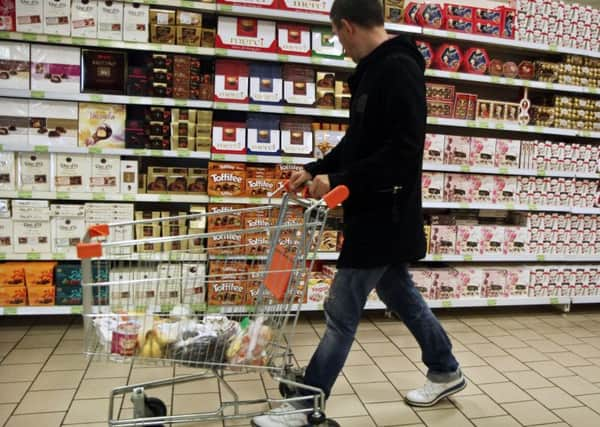Bad Brexit customs deal '˜will mean gaps on UK shop shelves'


The British Retail Consortium (BRC) said failure to secure a seamless transition into a new customs relationship by the time Brexit takes place in March 2019 would “affect availability on the shelves, increase waste and push prices up”.
More than three-quarters of food imported by the UK comes from EU countries and will be covered by new customs arrangements within as little as 18 months.
Advertisement
Hide AdAdvertisement
Hide AdHowever, talks on future economic ties have yet to begin, with the latest round of negotiations deadlocked over the issue of the UK’s Brexit bill amid an increasingly bitter war of words.
In a report setting out its goals for the future customs relationship, the BRC warned that a “no deal” scenario, with the UK leaving the EU without an agreement on a future trading relationship, or a transitional period to implement the new system, could result in major delays in getting perishable products such as food across borders.
Annual customs declarations are estimated to rise from 55 million to 255 million and the BRC warned that a “no deal” situation could result in delays of up to three days at ports.
Exiting the EU on World Trade Organisation terms, without a deal with Brussels, would lead to 180,000 extra firms being drawn into customs declarations for the first time.
As well as a customs agreement, the BRC highlighted the need for deals with Brussels on health and veterinary checks, security, VAT and haulage.
BRC chief executive Helen Dickinson said: “A strong deal on customs is absolutely essential to deliver a fair Brexit for consumers. Whilst the Government has acknowledged the need to avoid a cliff-edge after Brexit day, a customs union in itself won’t solve the problem of delays at ports.
“So to ensure supply chains are not disrupted and goods continue to reach the shelves, agreements on security, transit, haulage, drivers, VAT and other checks will be required to get systems ready for March 2019.
“We want to work with the Government to develop a system which works for consumers, so that there’s no difference in terms of the availability of affordable, quality products when they make purchases or visit stores post-Brexit.
“We believe our recommendations will help to achieve that and enable our world-leading retail industry to continue serving customers and contribute to the growth of the UK economy.”
